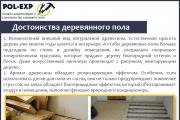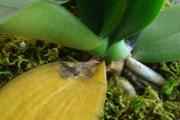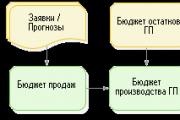Batyushkin Konstantin Nikolaevich. Batyushkov, Konstantin Nikolaevich - biography
Batyushkov Konstantin Nikolaevich (1787-1855) is one of the most beautiful Russian poets of his time. For a long time he led the movement of Anacreontist poets and was a very well-known figure in literary circles. Today his name is practically forgotten; few people know that such a wonderful writer once lived. Let's correct this injustice.
Batyushkov: biography
The future writer was born on May 18 in the city of Vologda, into an old but impoverished family of nobles. He was the first son; before him, the Batyushkov couple had four daughters. Konstantin turned out to be the long-awaited boy.
The poet's father, Nikolai Lvovich, was an educated man, but his character was greatly spoiled by his resentment against the government due to the disgrace that befell the Batyushkovs due to the participation of a relative in a conspiracy against Catherine II. Konstantin did not have time to recognize his mother, Alexandra Grigorievna (nee Berdyaeva) at all - she became seriously ill when the boy was just six years old, and soon died. Her illness was mental and was transmitted to the writer himself and his older sister.
Little Kostya spent his childhood on the family estate, which was located in the village of Danilovskoye. But after the death of his mother, he was sent to the St. Petersburg boarding house O. Zhakino. Only at the age of 16 was Batyushkov able to leave this educational institution. At this time, he actively began to study literature, read a lot in French, and mastered Latin perfectly in order to study classical texts in the original.
Independent life in the capital
Batyushkov Konstantin Nikolaevich decides to stay in the capital. At first, his uncle, M. N. Muravyov, helps him. In 1802, he arranged for the young man to work in the Ministry of Public Education. Then, in 1804, the writer went to serve in Muravyov’s office at Moscow University, where he held the position of clerk.

During these years, Batyushkov became close to some of his colleagues, many of whom began to join Karamzin’s rule and eventually founded the “Free Society of Lovers of Literature, Sciences and Arts.” His closest friends were N. Gnedich and I. Pnin. Thanks to their influence, the future poet begins to try his hand at writing.
In 1805, Batyushkov’s first poem, “Message to My Poems,” was published in the magazine “News of Russian Literature.”
Civil uprising
In 1807, despite his father’s protests, Batyushkov enlisted in the people’s militia. In these years, poetry fades into the background for a young man. On February 22 of the same year, he was appointed a hundredth in a police battalion and sent to Prussia. Since May, Batyushkov begins to take an active part in hostilities. Soon he is seriously wounded and sent to Riga for treatment. For his heroism he receives the Order of St. Anne, 3rd degree.
While the treatment lasted, the writer fell in love with Emilia, the daughter of a local merchant. However, the love interest did not continue, and only two poems remained in memory of it: “Memories of 1807” and “Recovery.”
By 1808, the writer had become physically stronger and was returned to service. This time he ended up in the Guards Jaeger Regiment, which was sent to the war with Sweden. After returning from the campaign, he took leave and went to visit his unmarried sisters who lived in the Novgorod province. At this time, his mother’s “inheritance” began to manifest itself - Batyushkov became more and more impressionable, sometimes it came to hallucinations. The writer himself believed that in ten years he would finally go crazy.

Return to the light
In December 1809, Muravyov invited his nephew to Moscow. With great joy, Batyushkov returns to the world. The writer's biography tells us that he had many friends among artists whom he met in St. Petersburg and Moscow. At this time, the writer became especially close friends with P. Vyazemsky and V. Pushkin.
But his acquaintance with V. Zhukovsky and N. Karamzin became fateful; the latter very soon realized how talented the young man was and highly appreciated his work. In 1810, having received his resignation from the regiment, he went at the invitation of Karamzin to rest in the fate of the Vyazemsky Fathers. The poet's poems became more and more popular in these years, which explains the desire of noble nobles to see him as guests.
In 1813, the writer moved to St. Petersburg, where he got a job at the Public Library. He continues to meet new people and lead an active social life.
Unhappy love
In 1815, Batyushkov fell in love for the second time. The biography says that this time his chosen one was a socialite, Anna Furman. However, the writer quickly realized that the girl did not reciprocate his feelings, and was ready to get married only at the will of her guardians. The situation was aggravated by the fact that Konstantin Nikolaevich could not get a transfer to the guard. All this led to a severe nervous breakdown that lasted several months.
A new blow for the writer was the death of his father in 1817, with whom he had always been on bad terms. Feelings of guilt and unsuccessful love prompted him to turn to religion, in which he saw the only opportunity for a person to maintain his high moral and spiritual position.

During these difficult years, Batyushkov was greatly helped by Zhukovsky, who constantly supported the poet and convinced him to continue writing. This helped, and Batyushkov took up his pen again. A year later he returned to Moscow, where close friends and acquaintances were waiting for him.
Italy
In 1818, the Russian poet Batyushkov went to Odessa for treatment. Here he received a letter from A. Turgenev, who managed to secure a place for his friend in Naples at the diplomatic mission. Konstantin Nikolaevich dreamed of visiting Italy for many years, but the news did not please him. At this time he was experiencing great disappointment in life, and the news only made the situation worse.
Despite these sentiments, in 1819 Batyushkov arrived in Italy. This country made a strong impression on him. He met many interesting people, including Russian artists who lived in Rome. But the happiness did not last long, and soon the poet began to miss his homeland.
The writer's health did not improve, so in 1821 he went to Germany for water. His mental illness manifested itself more and more, Batyushkov began to suspect that some enemies were watching him. The poet spent the winter of 1821 and all of 1822 in Dresden. At this time, he wrote the best poem, according to critics, “The Testament of Melchizedek.”

Last years and death
In 1822, Batyushkov began to lose his mind (his biography confirms this). He returns to his homeland. He lives in St. Petersburg for some time, and then goes on a trip to the Caucasus and Crimea. During the trip, he attempted suicide several times.
In 1824, the poet, thanks to the financial assistance of Alexander I, was placed in a private psychiatric hospital in Saxony. He spent 4 years here, but the treatment did not bring any benefit. Therefore, his family decided to move him to Moscow. At home, Konstantin Nikolaevich Batyushkov felt better, the acute attacks practically passed, and the disease subsided for a short time.
In 1833, the writer was transported to the house of his nephew, who lived in Vologda. Here Batyushkov spent the rest of his days. The poet died on July 7, 1855.
Konstantin Batyushkov: interesting facts
Let us list some interesting moments from the life of the writer:
- Pushkin called the poet his teacher and admired his work, especially highlighting the early period.
- Batyushkov’s main principle when writing a work was: “Live as you write, and write as you live.”
- In 1822, the poet wrote his last work; he was only 35 years old.
- Batyushkov lived the last 22 years of his life completely losing his mind.
Features of creativity
Konstantin Batyushkov did a lot for Russian literature and poetic language. Poems about love, usually sad and mournful, are why they were so popular among their contemporaries. The poet managed to transform his native language, making it more flexible and harmonious. Belinsky believed that only thanks to the works of Batyushkov and Zhukovsky, Pushkin managed to achieve such lightness and grace in his poetry.

The main advantage of Konstantin Nikolaevich’s poems lies in the perfection of their form, the purity and correctness of the language, and the always consistent artistic style. Batyushkov worked long and hard on every word, often correcting what he had written. At the same time, he tried to maintain sincerity and avoided any far-fetchedness and tension.
Crucial moment
Konstantin Nikolaevich Batyushkov often turned to the past in his works. Poems about nature were usually interspersed with ancient mythological traditions. His early work is usually called Epicurean (or Anacreontic). The poet tried to reproduce the light and elegant style of ancient writers, but he believed that the Russian language was still too rough for this. Although critics admitted that he achieved significant success in this area.
But the cheerful epicurean poetry did not attract Batyushkov for long. After the War of 1812, in which the poet participated, his worldview changed greatly. He considered the French Enlightenment to be the cause of Napoleonic acts. And he considered the trials that befell Russia to be the accomplishment of its historical mission. At this time, his poems changed greatly. There is no longer lightness and carelessness in them, they talk about reality - war, the soul of the Russian soldier, the strength of the people's character. Best poem This period is considered to be the “Crossing of the Rhine”.
Let's answer the question about in which direction of poetry Konstantin Batyushkov became famous, since it is asked most often. As already mentioned, these are Anacreontic (or Epicurean) lyric poetry. Its distinctive features are lightness, carelessness, joy, glorification of life and enjoyment of it.
Prose

Batyushkov was known not only as a poet, his prose was also highly appreciated by his contemporaries. According to them, the main advantage of his works was his clear, imaginative and vivid language. However, the writer turned to prose much later than his literary career began. This happened after a creative turning point, so religious and philosophical issues are often raised in these works. Batyushkov also paid great attention to theoretical problems of literature (“Something about the poet and poetry”, “Speech about the influence of light poetry on the language”).
Now we see that the importance of the writer’s works for the development of Russian literature cannot be overestimated.
Konstantin Nikolaevich Batyushkov was born on May 18 (29), 1787, in Vologda. He came from ancient noble family, was the fifth child in a large family.
Having lost his mother early, he soon entered one of the St. Petersburg boarding schools to study.
Konstantin did a lot of self-education. Under the influence of his uncle, M.N. Muravyov, he learned Latin and became interested in the works of Horace and Tibullus.
On duty
In 1802, the young man, under the patronage of his uncle, was assigned to serve in the Ministry of Public Education. In 1804-1805 held the position of clerk in the office of M. N. Muravyov. During his service, he continued to be drawn to literature. He became close to the founders of the “Free Society of Literature Lovers” I. P. Pnin and N. I. Gnedich.
In 1807, Konstantin Nikolaevich, contrary to the opinion of his father, became a member of the people's militia. In the spring of this year he took part in hostilities and was awarded Anna III degree for his courage.
In 1809 he moved to Moscow, where he met with P.A. Vyazemsky, V.A. Zhukovsky and N.M. Karamzin.
At the very beginning of 1812, Batyushkov moved to St. Petersburg and entered the service of the public library. He regularly met and communicated with I. A. Krylov.
Studying short biography Batyushkov, you should know that in July 1813 he became the adjutant of General N.N. Raevsky, the hero of the Patriotic War, and reached Paris.
Literary activity
The first attempt at writing took place in 1805. Konstantin Nikolaevich’s poem “Message to My Poems” was published in the magazine “News of Russian Literature”.
During the military campaign of 1807, Batyushkov undertook the translation of “Liberated Jerusalem” by Tass.
Batyushkov’s main merit is his deep work on Russian poetic speech. Thanks to him, the Russian poem became stronger and began to sound harmonious and at the same time passionate. V. G. Belinsky believed that it was the works of Batyushkov and Zhukovsky that prepared the ground for the discovery of the powerful talent of A. S. Pushkin.
The work of Batyushkov himself was quite unique. From his youth, fascinated by the works of ancient Greek thinkers, he unwittingly created images that were not entirely understandable to the domestic reader. The poet's first poems are permeated with epicureanism. They amazingly combine mythology and the life of an ordinary Russian village.
Batyushkov wrote such prose articles as “An Evening at Kantemir’s”, “On the Works of Muravyov” and “On the Character of Lomonosov”.
In October 1817, his collected works “Experiments in Poems and Prose” were published.
last years of life
Batyushkov Konstantin Nikolaevich suffered from a severe nervous disorder. This disease was passed on to him by inheritance. The first seizure occurred in 1815. After that, his condition only worsened.
In 1833, he was dismissed and placed in his hometown, in the house of his own nephew. He lived there for another 22 years.
Batyushkov passed away on July 7 (19), 1855. The cause of death was typhus. The poet was buried in the Spaso-Prilutsky Monastery, which is located 5 versts from Vologda.
Word variations: EUGENE
Inclusion: 4. Size: 67kb.
Inclusion: 4. Size: 60kb.
Inclusion: 4. Size: 143kb.
Inclusion: 3. Size: 110kb.
Inclusion: 3. Size: 115kb.
Inclusion: 3. Size: 50kb.
Inclusion: 2. Size: 62kb.
Inclusion: 2. Size: 53kb.
Inclusion: 2. Size: 91kb.
Inclusion: 2. Size: 75kb.
Inclusion: 2. Size: 132kb.
Inclusion: 1. Size: 61kb.
Inclusion: 1. Size: 35kb.
Inclusion: 1. Size: 40kb.
Inclusion: 1. Size: 11kb.
Inclusion: 1. Size: 19kb.
Inclusion: 1. Size: 121kb.
Inclusion: 1. Size: 27kb.
Inclusion: 1. Size: 76kb.
Inclusion: 1. Size: 36kb.
Inclusion: 1. Size: 5kb.
Inclusion: 1. Size: 4kb.
Inclusion: 1. Size: 2kb.
Inclusion: 1. Size: 19kb.
Inclusion: 1. Size: 75kb.
Sample text on the first pages found
Inclusion: 4. Size: 67kb.
Part of the text: Mikhail Nikitich. And M. N. Muravyov himself, a poet, prose writer and educator of the late 18th century, was Konstantin Batyushkov’s cousin. UNCLE There is extensive literature about the famous but forgotten poet of the 18th century M. N. Muravyov 1: most of the research dates back to recent times. Only at the end of the 1930s did literary scholars pay serious attention to this original and innovative poet. His biography is briefly as follows. Mikhail Nikitich Muravyov was born on October 25, 1757. His father, Nikita Artamonovich, who served as a military engineer, often changed his abode: Smolensk, Vologda, Arkhangelsk, Orenburg, Moscow, again Vologda, Petersburg, Tver... The military engineer took his son and daughter, Fedosya Nikitichna, with him, and due to frequent moves, the future poet did not receive a systematic education: he studied only for a year and a half at the gymnasium at Moscow University and for several months (until the beginning of 1770) at the university. However, this lack of a unified and integral upbringing did not prevent M. N. Muravyov from becoming one of the most educated people of his century. Back in Orenburg, five-year-old Mikhail studied German language from a local man in Kalau, and began studying with his father...
Inclusion: 4. Size: 60kb.
Part of the text: 5 B.V. Tomashevsky drew attention to the fact that both Delvig’s ancient “idyls” and his Russian songs, which were very popular, did not set themselves the goal of conveying the true spirit and forms of ancient and Russian oral poetic creativity. Even meters “similar” to antiquity or Russian song were invented by Delvig. This, of course, is far from accidental. See the introductory article by B.V. Tomashevsky to Delvig’s “Poems,” “Soviet Writer,” L. 1936 (“The poet’s book.” Small series). 6 G. Heine, Travel Pictures, Part III, Ch. XXX. 7 The spirit of history of Ferran (French). 8 K. N. Batyushkov, Works, ed. L. N. Maykova, vol. III, St. Petersburg. 1886, p. 136. This edition is quoted throughout. 9 K. N. Batyushkov, Soch., vol. II, p. 121. 10 Ibid., vol. III, p. 305. 11 Ibid., vol. II, p. 144. 12 K. N. Batyushkov, Soch ., vol. III, p. 342. 13 Ibid., pp. 205-206. 14 K. N. Batyushkov, Works, vol. III, pp. 208-210. 15 K. II. Batyushkov, Soch., vol. II, pp. 131-132. 16 “Ostafievsky archive of the Vyazemsky princes”, vol. II, St. Petersburg. 1899, p. 295. 17 We are talking about the “Robber Brothers”. - “Ostafevsky Archive of the Princes of Vyazemsky”, vol. II, p. 322. 18 K. N. Batyushkov, Works, vol. III, p. 63. 19 This refers to Peter’s reforms. 20 K. N. Batyushkov, Works, vol. III, p. 58. 21 K. N. Batyushkov, Works, vol. II, article “Petrarch” (1815). Batyushkov had great respect for European philology and, like Pushkin, regretted that it was not yet sufficiently developed in our country (Pushkin wrote about this to A. Bestuzhev in late May - early June 1825). Batyushkov was very proud that he had independently made a historical and literary discovery, having discovered many expressions and poems of Petrarch in Tasso’s “Liberated Jerusalem.” 22...
Inclusion: 4. Size: 143kb.
Part of the text: way than Pushkin, who accumulated in his lyrics the entire history of his life, from the Lyceum to exile and service bondage. In Baratynsky, even such a decisive event as the Finnish exile serves primarily as a background for elegiac lyricism, gives it color, but does not determine its essence. If the image of the exiled poet in Pushkin’s southern lyrics is always in the foreground, always shaded by the grandeur of the landscape, then Baratynsky includes thoughts about himself in a different frame. His “Finland” (1821) is built as a chain of reflections on eternity, absorbing everything temporary. In this frame, the image of the poet is small, “unknown,” and “not eternal.” The similarity of one’s own fate with the fate of others is the main idea of the elegy “Finland”. How unlike this is, on the one hand, to Yazykov, and on the other, to Pushkin! The judgment of the contemporary poet P. A. Katenin about the intonation, about the speech coloring of the poems of “Eugene Onegin” is characteristic: “I found you here, your conversation, your gaiety,” 279 - Katenin wrote to Pushkin. As for Baratynsky, his style of conversation “in life” was undoubtedly different from his literary style. The author of “Autumn” and “The Little One” charmed with the soft charm of his calm, secular speech. Dissatisfied with his interlocutors, Pushkin once remarked: “Can people be so...
Inclusion: 3. Size: 110kb.
Part of the text: The poet's first biographer, L.N. Maikov, compares Batyushkov with the pre-Byron hero of the beginning of the century - Rene from Chateaubriand's novel of the same name 1. Batyushkov was deeply characterized by a feeling of discord between the ideal and reality. His worldview and creativity have a pronounced humanistic basis, which was based on the broad tradition of European thought. From these positions the poet assessed his modernity. Painfully experiencing the then-recent events, Batyushkov believed that the French Revolution destroyed the very possibility of building an ideal of life on the basis of political activity. He wrote to N.I. Gnedich in 1811: “And here in front of me lies on the table the third volume of Esprit de l'histoire, par Ferrand 2, which proves that people kill each other in order to found states, and states themselves are being destroyed over time, and people must again cut themselves and will cut themselves, and from popular government monarchical rule will always be born, and there are no eternal monarchies, and republics are more miserable than monarchies, and there is evil everywhere, and the science of politics is a consoling, instructive, edifying science... and God knows what it is! I close the book. Let those who have neither heart nor soul read these bloody extracts” 3. In the first half of his creative life, before...
Inclusion: 3. Size: 115kb.
Part of the text: has its torments,” said the late Muravyov, quite rightly. And I, truly, have suffered without any talent. K. N. Batyushkov. From a letter to Vyazemsky dated February 1815, Batyushkov sincerely considered his life “unpoetic”: “Three wars, all on horseback, and in peace on the high road.” She was like that - full of wanderings, dissatisfaction, literary failures, and noisy successes, and the subsequent rejection of her own successes, and a constant depressing state, the feeling that something basic had not been done, something especially important and necessary, which she had passed by. “on the high road”, didn’t notice and didn’t grab it... “I ask myself,” adds Batyushkov, “in such a stormy, fickle life, is it possible to write something perfect? Conscience answers: no! (III, 447-448). He sincerely envies the creatively living Zhukovsky, the purposeful Gnedich, the sage Krylov: these writers found themselves and their calling, they settled under their chosen banner and live harmoniously. Batyushkov could never choose his own once and for all...
Russian empire
Konstantin Nikolaevich Batyushkov (May 18 (29) ( 17870529 ) , Vologda - June 7 (19), Vologda) - Russian poet, predecessor of Pushkin.
Biography
Born into the Batyushkov family, his father was Nikolai Lvovich Batyushkov (1753-1817). He spent the years of his childhood on the family estate - the village of Danilovskoye. At the age of 7, he lost his mother, who suffered from mental illness, which was inherited by Batyushkov and his older sister Alexandra.
The poems of the first period of the poet’s literary activity are imbued with Epicureanism: the man in his lyrics passionately loves earthly life; The main themes in Batyushkov's poetry are friendship and love. Having abandoned the moralism and mannerisms of sentimentalism, he finds new ways of expressing feelings and emotions in verse, extremely vivid and vital:
Slender figure, entwined around
A crown of yellow hops,
And flaming cheeks
Roses are bright crimson,
And the lips in which it melts
Purple grapes -
Everything in the frantic seduces!
Fire and poison pour into the heart!
In response to the events of the Patriotic War, Batyushkov created examples of civil poetry, the patriotic spirit of which is combined with a description of the deeply individual experiences of the author:
... while on the field of honor
For the ancient city of my fathers
I will not sacrifice myself for revenge
Both life and love for the homeland;
While with the wounded hero,
Who knows the path to glory,
I won't place my breasts three times
In front of the enemies in close formation -
My friend, until then I will
All are alien to muses and harites,
Wreaths, with the hand of love retinue,
And noisy joy in wine!
In the post-war period, Batyushkov's poetry gravitated towards romanticism. The theme of one of his most famous poems, "The Dying Tasso" (), is the tragic fate of the Italian poet Torquato Tasso
Do you remember how many tears I shed as a baby!
Alas! since then the prey of evil fate,
I learned all the sorrows, all the poverty of existence.
The abysses dug by fortune
They opened up beneath me, and the thunder did not stop!
From one place to another, persecuted from country to country,
I searched in vain for refuge on earth:
Her irresistible finger is everywhere!
Notes
Essays
- Batyushkov K. N. Works / Introduction. Art. L. A. Ozerova; Prep. text and notes by N.V. Friedman. - M.: State. art publishing house Literary, 1955. - 452 p. Circulation 75,000 copies.
- Batyushkov K. N. Complete collection of poems / Enter. Art., preparation of text and notes by N.V. Friedman. - M., L.: Sov. writer, 1964. - 353 p. Circulation 25,000 copies. (The Poet's Library. Large series. Second edition.)
- Batyushkov K. N. Works / Introduction. Art. and comp. V.V. Gury. - Arkhangelsk: North-West. book publishing house, 1979. - 400 p. Circulation 100,000 copies.
- Batyushkov K.N. Selected works / Comp. A. L. Zorina and A. M. Peskova; Entry Art. A. L. Zorina; Comm. A. L. Zorina and O. A. Proskurina. - M.: Pravda, 1986. - 528 p. Circulation 500,000 copies.
- Batyushkov K.N. Poems / Comp., intro. Art. and note. I. O. Shaitanova. - M.: Artist. lit., 1987. - 320 p. Circulation 1,000,000 copies. (Classics and contemporaries. Poetry library)
- Batyushkov K.N. Works in two volumes. T.1: Experiments in poetry and prose. Works not included in the “Experiments...”/ Comp., prepared. text. entry article and comment. V. A. Kosheleva. - M.: Artist. lit., 1989. - 511 p. Circulation 102,000 copies.
- Batyushkov K.N. Works in two volumes. T.2: From notebooks; Letters. / Comp., prepared. text, comment. A. L. Zorina. - M.: Artist. lit., 1989. - 719 p. Circulation 102,000 copies.
Literature
- Afanasyev V. Achilles, or the Life of Batyushkov. - M.: Children's literature, 1987.
- edit] Links
Konstantin Batyushkov in Wikiquote in Wikisource Konstantin Batyushkov on Wikimedia Commons - K. N. Batyushkov. Batyushkov: Eternal Dreams Collected works, general works, memoirs of contemporaries, life of the poet, genealogy, creativity, bibliography, album
- K. N. Batyushkov on feb-web. Complete works, monographic studies
- K. N. Batyushkov Biography, criticism, monographic works are widely presented
- Batyushkov in the poetry library Collected works, translations, criticism
- Konstantin Batyushkov. Poems in the Anthology of Russian Poetry
- Batyushkov K. N. Collected poems on stroki.net
Literary Society "Arzamas" Members D. V. Dashkov D. N. Bludov A. I. Turgenev S. S. Uvarov K. N. Batyushkov P. A. Vyazemsky A. A. Pleshcheev V. L. Pushkin A. S. Pushkin A. F. Voeikov D. P. Severin F. F. Vigel D. V. Davydov Honorary members N. M. Karamzin I. I. Dmitriev G. I. Gagarin Yu. A. Neledinsky-Meletsky A. N. Saltykov M. A. Saltykov Addresses Uvarov · Malaya Morskaya, 21 At Bludov's · Nevsky, 80 At Turgenev · Fontanka embankment, 20 At Pleshcheev Galernaya, 12
Batyushkov Konstantin Nikolaevich (1787-1855), poet.
Born on May 29, 1787 in Vologda into an old noble family. The poet's childhood was overshadowed by mental illness and the early death of his mother. He was educated in an Italian boarding school in St. Petersburg.
Batyushkov’s first known poems (“God”, “Dream”) date back to approximately 1803-1804, and he began publishing in 1805.
In 1807, Batyushkov began a grandiose work - the translation of a poem by an Italian poet of the 16th century. Torquato Tasso "Jerusalem Liberated". In 1812 he went to war with Napoleon I, where he was seriously wounded. Subsequently, Batyushkov then re-entered military service(participated in the Finnish campaign of 1809, foreign trips Russian army 1813-1814), he either served in the St. Petersburg Public Library, or lived in retirement in the village.
In 1809, he became friends with V. A. Zhukovsky and P. A. Vyazemsky. In 1810-1812 the poems “Ghost”, “False Fear”, “Bacchante” and “My Penates” were written. Message to Zhukovsky and Vyazemsky." To their contemporaries they seemed full of joy, glorifying the serene enjoyment of life.
The collision with the tragic reality of the Patriotic War of 1812 produced a complete revolution in the poet’s mind. “The terrible actions... of the French in Moscow and its environs... completely upset my little philosophy and quarreled me with humanity,” he admitted in one of his letters.
The cycle of Batyushkov’s elegies of 1815 opens with a bitter complaint: “I feel that my gift in poetry has gone out...”; "No no! life is a burden to me! What is there without hope?..” (“Memoirs”). The poet either hopelessly mourns the loss of his beloved (“Awakening”), then evokes her appearance (“My Genius”), or dreams of how he could hide with her in idyllic solitude (“Tavrida”).
At the same time, he seeks consolation in faith, believing that beyond the grave a “better world” will certainly await him (“Hope”, “To a Friend”). This confidence, however, did not relieve anxiety. Batyushkov now perceives the fate of every poet as tragic.
Batyushkov was tormented by illness (consequences of old wounds), and economic affairs were going badly. In 1819, after much trouble, the poet received an appointment to the diplomatic service in Naples. He hoped that the climate of Italy would benefit him, and that impressions of his childhood favorite country would inspire him. None of this came true. The climate turned out to be harmful for Batyushkov; the poet wrote little in Italy and destroyed almost everything he wrote.
From the end of 1820, a severe nervous disorder began to appear. Batyushkov was treated in Germany, then returned to Russia, but this did not help either: the nervous illness turned into mental illness. Attempts at treatment yielded nothing. In 1824, the poet fell into complete unconsciousness and spent about 30 years there. Towards the end of his life his condition improved somewhat, but his sanity never returned.














